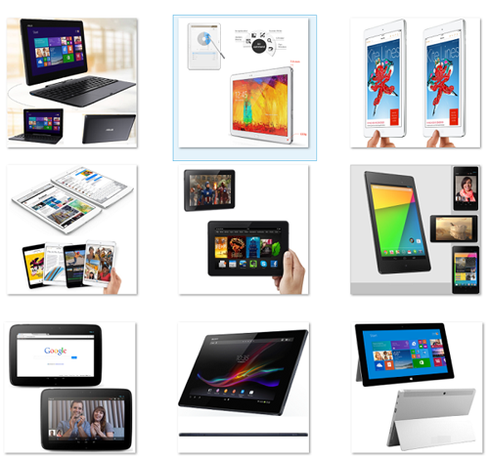Apple Phablet Could Disrupt MarketApple Phablet Could Disrupt Market
Phablets aren't a fad, Juniper Research says. Android and Windows Phone will lead the market -- at least until Apple jumps in.


10 Best Tablets Of 2013
10 Best Tablets Of 2013 (Click image for larger view.)
Once derided for their ludicrous size, phablets are now a mainstream device. The success of Samsung's Galaxy Note series -- with tens of millions of units sold -- has cemented the phablet's position in the market. The category is now full of models from nearly every hardware vendor. Juniper Research believes global phablet shipments will surpass 120 million by 2018, with Eastern markets leading adoption.
In a new report, Juniper made the case for phablets as an area of growth for established smartphone makers. In particular, companies such as Samsung, LG, Sony, and others can build on their existing economies of scale and brand power. Markets such as Korea and China will be the most likely to purchase phablets in growing numbers. Samsung recently indicated that it shipped 10 million Galaxy Note 3 phablets in Korea alone. Gaming is particularly popular in Korea, while streaming video content is popular in China, and the larger screen sizes are preferred in those markets.
Juniper defines phablets as devices that have screens 5.6 inches or larger. This would include the Samsung Galaxy Note 3 and Galaxy Mega, the HTC One Max, Sony Xperia Z Ultra, the LG G Pro, and a handful of others.
[Is there hope in Redmond? See Can Windows Tablets Break Out In 2014?]
Companies like Samsung will lead the high end of the phablet market, but there is plenty of room for more players to join. Firms such as Alcatel, Intex, and others are seen jumping into the phablet fray with low-cost models that still offer the big-screen experience. While the larger players will see global success with flagship devices, smaller firms have a good chance of gaining solid footing in their home markets.
For now, Android and Windows Phone will be the dominant operating systems in the phablet space. Android already has the bulk of the phablet market under its belt, but Nokia made a big splash in late 2013 with the Lumia 1520 and 1320 phablets. Solid entries from Nokia and other potential Windows vendors could make a dent in the phablet space. However, Juniper said that Apple could disrupt the market. "This dynamic could change dramatically if the rumors of an Apple phablet were to be realized," said Juniper.
Apple has limited the size of the iPhone's screen to either 3.5 or 4 inches. It has shied away from the large-phone trend. Apple's iPhone doesn't compete with most of today's flagship devices in terms of screen size (most of which are about 5 inches), let alone the even larger screens of today's phablets. Reports suggesting that Apple will debut a larger iPhone have circulated for the better part of a year, but it hasn't happened yet.
Whether it does or not, the buying public has begun to put its dollars behind big-screened phones. Phablets are officially a thing.
Eric Zeman is a freelance writer for information specializing in mobile technologies.
Too many companies treat digital and mobile strategies as pet projects. Here are four ideas to shake up your company. Also in the Digital Disruption issue of information: Six enduring truths about selecting enterprise software. (Free registration required.)
About the Author
You May Also Like






